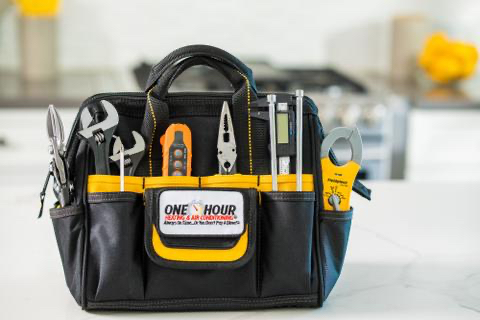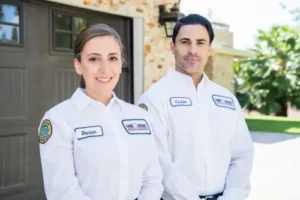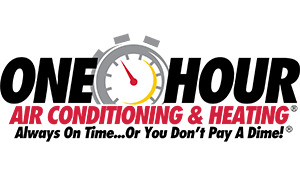Heat Pump Troubles? Keeping Your Home Comfortable

If your heat pump isn’t working as expected, you know how frustrating it can be. Heat pumps are crucial for keeping your home comfortable all year round, providing both heating and cooling. But when it malfunctions, it’s not just an inconvenience it can disrupt your entire day.
Thankfully, many heat pump issues can be diagnosed and fixed without breaking the bank. This guide will walk you through common problems with heat pumps, their causes, and what you can do to address them. Whether you’re dealing with poor heating, unusual noises, or a system that won’t turn on, we’ve got you covered.
Heat Pumps Not Heating or Cooling Properly
One of the most frequent complaints among homeowners is when heat pumps fail to maintain the desired indoor temperature. If your rooms feel too cold in winter or too hot in summer, your heat pump may not be operating efficiently. Here’s what could be happening:
Incorrect Thermostat Settings
Sometimes, the issue lies not with the heat pump but with the thermostat. It’s easy to overlook settings that have been accidentally changed. Check that the thermostat is set to the correct mode (heating or cooling) and the desired temperature.
Airflow Blockages
Proper airflow is essential for heat pumps to function efficiently. Clogged air filters, closed vents, or obstructions around the outdoor unit can prevent the system from circulating air effectively. A quick visual inspection can reveal if dust, debris, or furniture is blocking airflow.
Low Refrigerant Levels
Refrigerant is the lifeblood of your heat pumps, essential for effective heating and cooling. Low refrigerant levels often signal a leak in the system. This is an issue that requires professional servicing, as refrigerant leaks can lead to more significant problems if ignored.
Heat Pumps Won’t Turn On
A heat pump that doesn’t start can leave you scratching your head and reaching for an extra sweater. Here are some common culprits:
Power Supply Issues
Before assuming the worst, check the basics. Is your heat pump receiving power? It might seem obvious but tripped circuit breakers are a common and easily overlooked problem. Reset any tripped breakers and make sure the unit is plugged in securely.
Faulty Starting Components
The heat pump relies on components such as capacitors and relays to initiate operation. Over time, these parts can wear out. If your heat pump remains silent when you turn it on, a faulty capacitor or relay might be to blame. An HVAC technician can test and replace these components if necessary.
Unusual Noises or Vibrations
A heat pump is designed to operate quietly. If you start hearing strange noises, it’s often a sign that something’s amiss. Here’s what different sounds might mean:
Rattling or Clanking
Loose or misaligned parts inside the system can create rattling or clanking noises. This is often caused by wear and tear or improper installation. Tightening screws and bolts can sometimes eliminate the problem. If the sound persists, it’s best to consult a professional.
Buzzing or Humming
Buzzing sounds may indicate electrical issues, such as a failing capacitor or a loose wire. Humming noises, on the other hand, could stem from the fan motor or compressor. These issues typically require professional expertise to address safely.
Gurgling or Hissing
A gurgling noise might be caused by refrigerant flow, which is normal to an extent. However, hissing could signal a refrigerant leak or valve issue. Both of these problems can lead to reduced efficiency if not fixed promptly.
Heat Pump Freezing in Winter
It’s not uncommon for heat pumps to develop frost or ice during winter. While some frost is normal, excessive ice buildup can interfere with the unit’s ability to operate. Here’s what to look for:
Blocked Outdoor Unit
If leaves, dirt, or snow have accumulated around the outdoor unit, airflow can be restricted, leading to ice formation. Always keep the area around your outdoor unit clear.
Faulty Defrost Cycle
Heat pumps have a built-in defrost mode to melt ice during winter. If this cycle isn’t working, the system may stay frozen and struggle to function. Defrost cycle issues often stem from problems with sensors or the control board.
Heat Pump Short Cycling
Short cycling occurs when your heat pump turns on and off frequently without completing a full heating or cooling cycle. This can reduce the lifespan of your system and increase energy bills.
Dirty Components
A buildup of dirt on the evaporator coils or air filter can cause short cycling. Regular cleaning and maintenance can prevent this issue.
Incorrect Sizing
If your heat pump is too large or too small for your home, it won’t run efficiently. An oversized unit may reach the desired temperature too quickly, leading to frequent cycling. An undersized unit, on the other hand, may struggle to maintain the temperature, causing it to overwork itself.
Heat Pump Leaking Water
A water leak around your heat pump can indicate a drainage issue that needs attention.
Clogged Drain Line
The condensate drain line is responsible for removing built-up moisture from the system. Over time, debris can clog the line, causing water to back up and leak out. Flushing the drain line can usually resolve this issue.
Faulty Drain Pan
If the drain pan under the heat pump is cracked or rusted, water can escape instead of funneling through the drain line. Replacing the pan is a straightforward solution.
Heat Pump Running Constantly
If your heat pump seems to be working overtime and never shuts off, it might indicate a problem with efficiency.
Thermostat Calibration
An improperly calibrated thermostat might incorrectly sense the indoor temperature, causing the heat pump to keep running. Recalibrating or replacing the thermostat can fix this.
Insulation Problems
Poor home insulation can force your heat pump to work harder to maintain the desired temperature. Addressing insulation issues can make a significant difference in your system’s performance.
Taking Action for a Well-Functioning Heat Pump
Your heat pump is a vital piece of equipment that requires regular attention to operate at its best. By understanding the common problems outlined above, you can take the necessary steps to restore your system’s performance.
Maintenance Tips
Here are a few quick yet essential maintenance steps every homeowner can take to keep their heat pump running efficiently:
- Change air filters regularly to maintain airflow.
- Clear debris around the outdoor unit at least once a month.
- Schedule annual professional servicing to identify and address potential issues before they escalate.
When to Call a Professional
While some maintenance tasks can be handled on your own, never hesitate to seek professional help when dealing with complex problems. Issues like refrigerant leaks, electrical faults, or persistent system failures require the expertise of a licensed HVAC technician.
Experience Comfortable Living All Year Long
A malfunctioning heat pump doesn’t have to leave you out in the cold or sweating in the heat. By paying attention to early warning signs and addressing issues promptly, you can ensure your heat pump continues to provide comfort and efficiency for years to come. For more tips on maintaining your home systems or to connect with a trusted HVAC professional, feel free to reach out to us. A little attention goes a long way.
